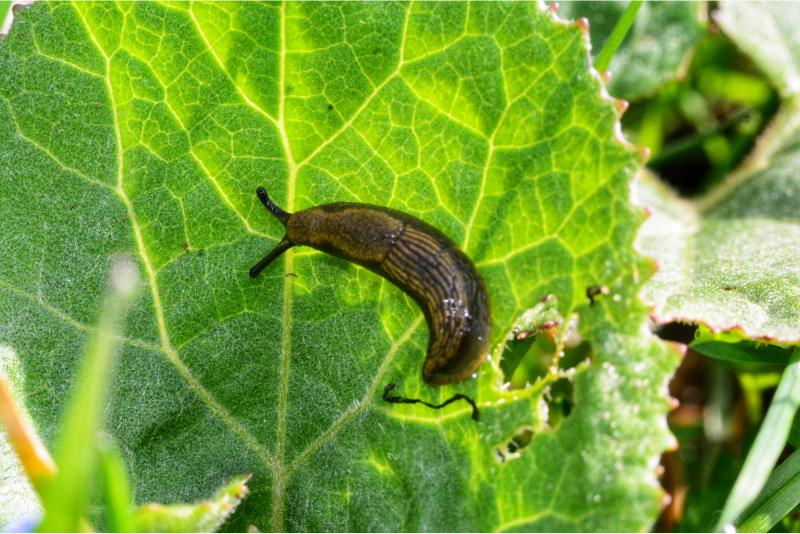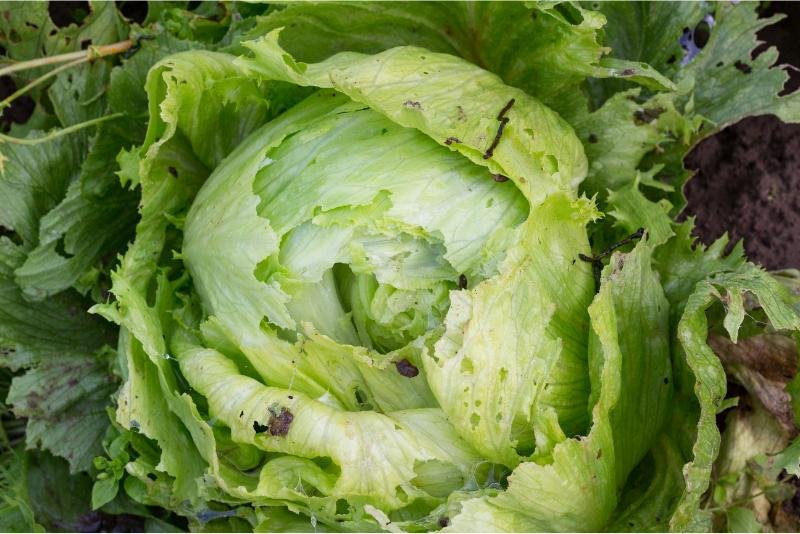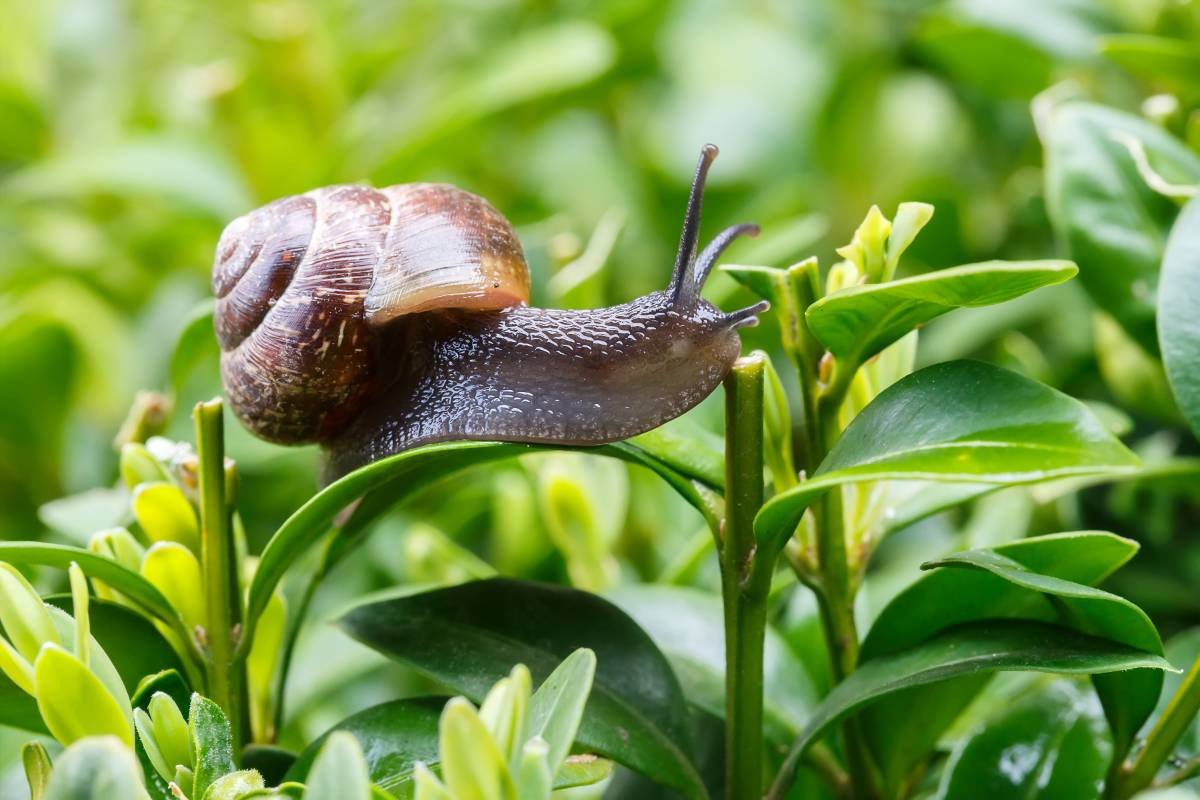Tips to Keep Slugs and Snails Out of Garden
Slugs and snails are surprisingly cute for slimy creatures. To prevent these pests from eating your spinach leaves or attacking your pepper plants and soon turning into unwelcome guests, it is wise to use a natural snail repellent.
Land snails frequently leave slime trails behind. Slugs, on the other hand, leave behind silvery slime traces on chewed-up leaves on the ground. Additionally, you’ll find holes in large foliage and fully eaten young leaves.

Slugs and snails consume a lot of leaves despite their small size. Additionally, it puts your precious plants in danger. So act quickly to find a solution to get rid of slugs and snails before they destroy your vegetable garden or eat the majority of the leaves on your plants.
We are well aware that using pesticides to drive them away could sound harsh. In addition to these pests, your animals that might wander nearby are also at risk. This requires you to consider how to get rid of slugs and snails naturally.
Here are 13 natural tips to keep slugs and snails out of the garden.
Natural Ways to Get Rid of Slugs and Snails
1. Diatomaceous Earth (DE)
It is a very well-liked insect deterrent throughout the world. DE is a finely ground fossilized byproduct of ancient freshwater diatoms. Diatoms are tiny green algae with a shell made of silica.
In food grade DE, it is employed in various grades to eradicate bedbugs, cockroaches, and even internal parasites. Diatomaceous earth has sharp edges. It’s like attempting to walk barefoot on glass for slugs and snails. Although this soil topping loses its effectiveness after rain, you will have to reapply it periodically.
2. Crushed Egg Shell
Crushed egg shells work similarly to diatomaceous earth in discouraging snail and slug activity since it is abrasive to their soft bodies. Eggshells offer the extra advantage of supplying your soil with calcium and other nutrients as they decompose, even though they aren’t as efficient as diatomaceous earth. Additionally, they are less affected by water.
3. Copper Tape
Slugs and snails cannot pass through copper. For this reason, some gardeners use copper tape to create an obstacle in their garden by wrapping it around specific plants or your potted plants in a ring just under the rim. Additionally, copper-impregnated carpets are available for use as pot support. But if plants develop leaves over that obstacle or reach another plant, snails use this as a path to the plant.
4. Coffee Grounds
If you enjoy coffee, your greatest option for preserving your plants and keeping slugs and snails away may be coffee grounds. Unlike us, slugs and snails dislike coffee. Additionally, coffee grounds enrich your soil with nutrients. Coffee grinds are one of the most effective and often suggested methods for keeping slugs and snails away from your yard.
5. Beer Trap for Slugs and Snails
Now it seems that slugs enjoy beer. A beer trap may be your best alternative if you don’t mind destroying the slugs and snails in your yard. Put a butter or yogurt container into the ground so that the rim is level with the soil. To build the beer trap, fill this with beer. Slugs and snails are drawn to it, fall in, and drown. Use a tub that is sufficiently deep so that the snails or slugs cannot crawl back out. But if you have any pet who might enter the tub and consume the beer before your bugs, this is not a fantastic solution.
6. Get Few Chickens or Ducks
Slugs and snails are eaten by a variety of birds. Any of these parasites that have made their way into the garden will be happily removed by them. Additionally, it promotes a regular ecological life cycle while acting as a natural pest control method in your garden. No chemicals are required, and the slugs and snails don’t die more slowly from poisoning or drowning.
In your garden, a range of unpleasant insects and pests can be managed with the help of chickens and ducks. As they hunt for insects and other pests, they will also assist in naturally turning your soil. In addition to giving you eggs, ducks, and chickens also supply dung for composting.
A more organic garden can draw more useful insects to your garden, which will eat and destroy slugs and snails as well as attract birds and other wildlife.
7. Plants that Deter or Attract Slugs and Snails
A few plants actively resist the majority of slugs and snails. Planting these beside your other plants or using them to manufacture an extract can have a repelling impact. These plants are:
Garlic
Garlic is a natural bug control that many gardeners rely on.
Chives
Like garlic, chives are also considered by many gardeners, who wrap the leaves around delicate plants.
Chamomile Plants
Slugs and snails are fond of chamomile flowering plants. To get the slugs and snails out of your yard, grow these flowering plants and wait with a container.
Herbs
Snails can be repelled by rosemary, sage, and parsley, all of which make lovely additions to your garden. To fight off slugs and snails, grow them surrounding your yard and between delicate plants. Additionally, you will get a lovely new herb garden to utilize in your cooking. Lavender functions similarly even though it is not a herb.
Mint
Mint grows rapidly and, if not controlled, can potentially take over a yard. If your flowerbed is being attacked by slugs and snails, you might want to try adding some mint clippings to the soil. The fragrance repels them. However, the floral scent and the sweet-smelling mint combine beautifully with the human nose.
8. Avoid Watering Your Garden at Night
Because they require moisture in order to exist, slugs and snails are busier at night. These slimy insects will be drawn to your plants when you water your yard in the dark because you’ll be giving them a place to live. On the next morning, your plant’s leaves will show the effect.
Watering your plants in the morning can help them dry out before evening and make them less appealing to slugs and snails.
9. Pick Them Off Manually
Although it could seem time-consuming, you might be able to seek your children’s assistance. This will be a great activity for them, and you won’t need to spray pesticides in the area where they play.
They can use a flashlight to hunt down the Slugs and snails at night when they are more active if it is safe to do so. Simply follow it with a soapy hand wash.
You can use the pest management services offered by eco-guard if you don’t want to do it yourself. They have a professional pest control license and excellent customer feedback.
10. Nematodes
A specific kind of tiny microscopic worm is called a nematode. Small gardens can benefit from this method of biological slug and snail control. A blend of nematodes and water is mainly used to water plants. The slug is killed by nematodes that enter its body and destroy it. Even while it’s not exactly a pleasant process, it’s natural and efficient.
11. Avoid Planting Marigolds
The flower marigold is a stunning addition to any garden. Slugs and snails are drawn to marigolds, despite the fact that they are a staple in gardening as a natural insect repellent. So don’t grow marigolds if you’re attempting to solve the slugs and snails problem.
12. Trap Plants
Trap plants, often known as sacrificial plants, can help safeguard your garden by bringing pests from outside. For example, if you want to safeguard an ornamental garden area, plant some lettuce near the flowering plants. They are more likely to consume lettuce than other flowering plants since slugs and snails prefer it over decorative plants.

13. Use Citrus Fruit’s Peels as a Trap
Save the peels from your lemons, limes, oranges, and even grapefruits, and distribute them in your garden before evening. Early in the morning, you’ll discover that many of your slugs and snails have made their way to these tempting delights. After that, you can gather them and relocate these slugs and snails at a distance of least 20 feet away from your garden.
Personally, I am not too keen on killing them in some ways I described in the post. Although they are a nuisance, yet better to trap and relocate them away from your garden.

